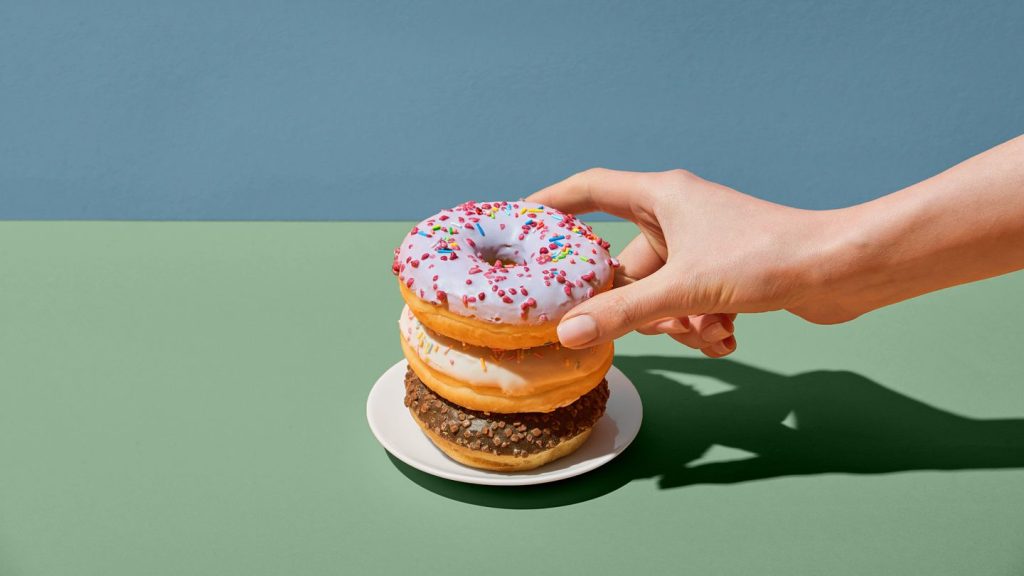Loneliness isn’t just a mood issue: A new study suggests that people who consider themselves socially isolated may also have more intense cravings for sugary foods as evidenced by scans of brain activity.
“While it is established that obesity is linked to depression and anxiety, and that binge eating is understood to be a coping mechanism against loneliness, I wanted to observe the brain pathways associated with these feelings and behaviors,” Gupta says.
To do this, Gupta and her team surveyed 93 women about their social connections, feelings of loneliness or isolation, body weight, and eating behaviors. Scientists then used magnetic resonance imaging (MRI) scans to see how participants’ brains responded when they saw abstract images unrelated to food or images of different sweet and savory foods.
The study found that, overall, participants who reported higher levels of social isolation were also more likely to have intense food cravings, unhealthy diets, uncontrolled eating, and symptoms of anxiety and depression.
MRIs also revealed that participants who felt the most socially isolated had the most activity in brain regions thought to play a role in responding to cravings for sugary foods. The loneliest participants also had reduced activity in brain regions that play a role in self-control related to eating behaviors.
“Social isolation can cause food cravings similar to the cravings for social connections,” Dr. Gupta says. “We show evidence for the fact that our social bonds are key in regard to how we eat unhealthy foods — especially highly calorie-dense foods and sweets.”
Study Suggests New Ways to Reduce Sugar Cravings
The study has certain limitations, including its small size and its reliance on participants to accurately recall and report details about their eating behaviors, mood, and health.
Even so, the results provide fresh evidence to suggest that our mood influences our response to food, says Lu Qi, MD, PhD, a professor and director of the obesity research center at the Tulane University School of Public Health and Tropical Medicine in New Orleans.
“The study finds brain reactivity particularly to sweet foods, which explains maladaptive eating behavioral changes among socially isolated people,” says Dr. Qi, who wasn’t involved in the research.
The good news in these findings is that people might be able to influence their eating behaviors by making changes in their social lives to reduce feelings of isolation, Qi says.
Looking for ways to build social support systems is a good way to start, Gupta says. This might mean pursuing a hobby, volunteering, joining clubs, or doing anything else that might help increase interactions with other people. Over time, this might help change how the brain responds to food cues in ways that make it easier to resist sweets.
“We can also use holistic mind-body interventions to normalize these alterations in the brain through meditation, journaling, and stress-reduction exercises,” Gupta says.
Being aware that sugar cravings are connected to social isolation may also help people feel like they have the ability to change their eating patterns, Gupta adds. “Knowing that being lonely makes you crave those high calorie foods — especially sugars — is empowering,” Gupta says.

